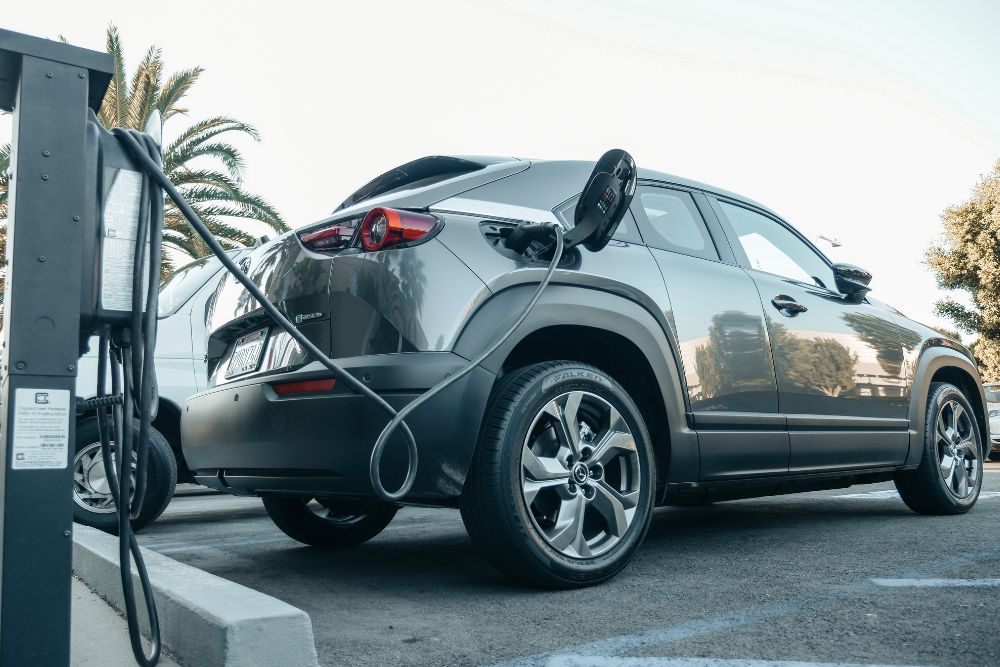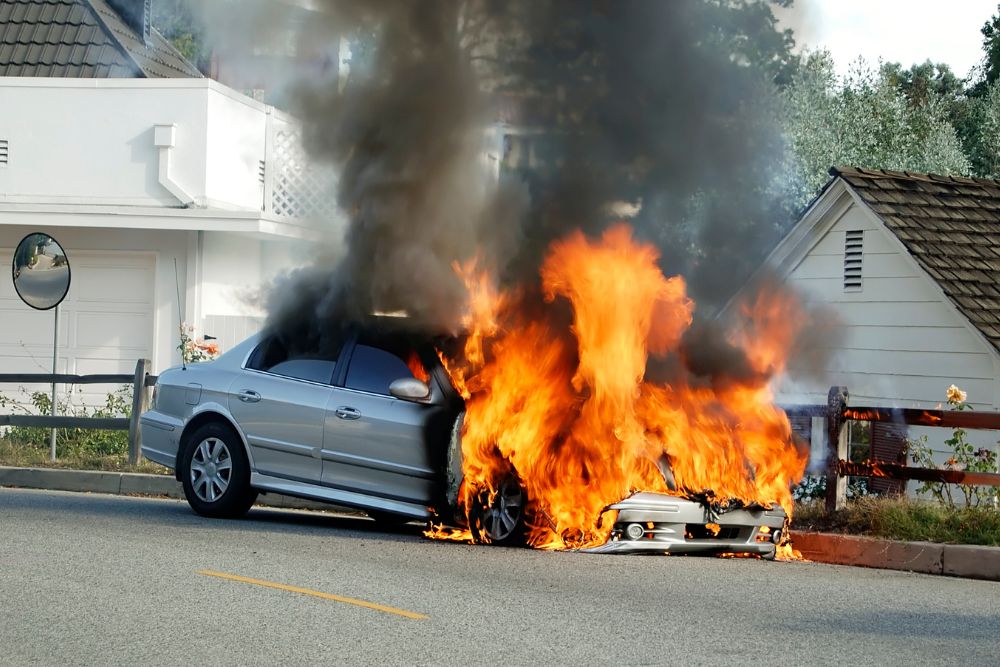Electric and hybrid vehicles are becoming increasingly popular across New Zealand due to their eco-friendly appeal and cost-efficiency in the long run.
While they are designed with advanced technology, these vehicles occasionally experience specific issues that require a professional’s expertise.
This article will delve into how an auto electrician can assist with electric and hybrid vehicle repairs, highlighting their indispensable role in ensuring your vehicle remains in optimal condition.
Professional Diagnosis of Electric and Hybrid Vehicle Issues
Electric and hybrid vehicles have a unique internal structure compared to traditional petrol or diesel-powered vehicles. The components used in these vehicles, such as the high-voltage lithium-ion battery, power inverters, electric motors, and regenerative braking systems, require specialised knowledge to diagnose issues accurately.
An auto electrician is equipped with the expertise and diagnostic tools to identify the root cause of problems without unnecessary guesswork. For instance, if you notice decreased battery efficiency or irregular energy flow, an auto electrician can conduct thorough checks using advanced diagnostic equipment to pinpoint the exact issue—be it a malfunctioning inverter, a failing battery cell, or a wiring fault. Their expertise reduces the time it takes to resolve problems and ensures the longevity of your electric or hybrid vehicle.
Additionally, modern electric cars come with integrated systems such as battery management systems (BMS), onboard diagnostic systems, and connected apps. An auto electrician’s proficiency in handling intricate software and hardware ensures that any glitches in these systems are quickly identified and resolved.
Battery and Charging System Repairs
The battery is one of the most critical components in electric and hybrid vehicles. Over time, batteries can degrade due to frequent charging cycles or exposure to extreme temperatures. Signs of battery issues include decreased driving range, slow charging, or dashboard warnings. Auto electricians are trained to evaluate the health of your vehicle’s high-voltage battery, determine the source of the problem, and recommend suitable solutions.
An auto electrician can also inspect and service the charging system. For electrics, they’ll troubleshoot issues with Level 1, Level 2, or DC fast charging compatibility. Whether it’s a damaged charging port, a fault in the charging cable, or calibration issues between the charger and battery, their specialised knowledge allows them to make precise repairs.
Electric Motor and Power Inverter Repairs
Electric motors and inverters convert electrical energy into rotational energy to propel your car. If any issues arise within your motor, such as abnormal noises, poor acceleration, or overheating, an auto electrician can perform comprehensive diagnostics and repairs. Similarly, if the power inverter malfunctions, it could lead to improper voltage conversion, affecting the vehicle’s overall performance.
Auto electricians are well-versed in the internal workings of electric motors and inverters. They can test, repair, or replace damaged components to restore your electric or hybrid vehicle’s performance. Their ability to work on these complex systems ensures that your car runs seamlessly.
Critical Maintenance Services for Hybrid Vehicles
Hybrid vehicles rely on a delicate balance between their internal combustion engines and electric motors. Maintaining this balance requires specialised attention, particularly for the high-voltage components.
Hybrid-Specific Maintenance
Regular hybrid maintenance may include inspecting and servicing components like the hybrid battery, DC-DC converter, electric motor assist systems, and electronically controlled braking systems. An auto electrician has the technical expertise to address any issues within these systems. For instance, hybrid owners may experience a sudden power loss or inconsistent transitions between the electric motor and internal combustion engine. An auto electrician can quickly identify and rectify the underlying problem.
Maintenance also extends to ensuring the overall health of auxiliary electrical components, such as 12-volt auxiliary batteries and power distribution circuits, that are unique to hybrid systems. Failing to address these in time can lead to ignition problems and decreased overall performance.
Regenerative Braking Systems
Many electric and hybrid vehicles are equipped with regenerative braking systems, which convert kinetic energy into electrical energy during braking. Over time, these systems might experience wear, particularly in high-usage vehicles, leading to reduced efficiency or mechanical failure. An auto electrician can service and maintain regenerative braking systems to ensure that energy recovery and braking reliability are optimised.
Upgrading Electric Vehicle Systems
Many electric and hybrid vehicle owners are keen on upgrading their vehicles’ systems, whether for better performance or to integrate the latest technologies. Auto electricians can assist with these upgrades, which may include customising the energy management system, updating dashboard interfaces, improving charging efficiency, or programming advanced vehicle controls.
An example of this is updating your vehicle’s software to accommodate newly installed hardware upgrades like high-capacity batteries or faster inverters. Manufacturer-specific requirements often necessitate the skills of a professional who knows how to safely and effectively execute these modifications while protecting the integrity of the vehicle’s systems.
The Importance of Choosing a Certified Auto Electrician
Given the technical complexity of repairs for electric and hybrid vehicles, it is crucial to seek the assistance of a certified auto electrician. Certified professionals are trained specifically in electric vehicle technology and adhere to safety protocols when handling high-voltage systems. Attempting to repair electric or hybrid vehicles without the necessary training can be dangerous, both for the vehicle and the individual working on it.
Moreover, working with the right professional can save time and money in the long run. Their deep understanding of vehicle-specific technology reduces the likelihood of misdiagnosis or improper repairs. Certified technicians are also familiar with the individual requirements of manufacturers like Tesla, Nissan, Toyota, or BMW, ensuring that any work performed complies with warranty standards.
Advanced Tools and Equipment
Another advantage of choosing a certified auto electrician is their access to advanced tools specifically designed for electric and hybrid vehicles. These tools include high-voltage insulation testers, thermal imaging cameras for battery assessments, and software diagnostic tools compatible with the latest models.
In New Zealand, where electric and hybrid vehicles are becoming a major part of sustainable transport, certified auto electricians remain at the forefront of offering reliable services to owners.
How to Prolong the Life of Your Electric or Hybrid Vehicle
While an auto electrician can assist with necessary repairs, proper vehicle care can help minimise the occurrence of major issues. Practical steps include regular charging according to manufacturer recommendations, avoiding frequent rapid charges to preserve battery health, and routinely scheduling inspections with an auto electrician.
Another key aspect of maintenance is keeping all electrical systems clean and functional. Dust, moisture, and other environmental factors can affect the charging system and connections. Regular inspections by a professional will ensure that everything is in good working condition.
Need Help With Electric and Hybrid Vehicle Repairs?
Electric and hybrid vehicles present unique challenges that demand specialised knowledge and tools for proper maintenance and repairs. Whether it’s diagnosing battery issues, repairing a regenerative braking system, or upgrading your vehicle’s technology, a skilled auto electrician is indispensable.
At Eurosparx, we are your trusted auto electricians in Auckland, specialising in electric and hybrid vehicle repairs. Our team is equipped with the knowledge and tools to ensure your vehicle remains roadworthy and safe. Contact us today by calling 09 218 7789 to discuss your electric or hybrid vehicle needs.



